I'm back.
I got in last night after a long day in airports via Baton Rouge and Atlanta, and I'm decompressing right now. I'm taking a couple days off from work, and I'm not writing yet. It's turned out to be a much more complicated emotional journey than I expected, and I really need some time to process what I've been through. ARC mental health staff who interviewed me during outprocessing said it's normal, and that I will be working through a grieving period that could last a long time. In addition, the work was physically exhausting, and I came down with strep throat while I was there. I had no internet access, and hardly any access to news of the rest of the world, which was probably a blessing, given what was already on my agenda. Right now, away from the work and the situation and able to finally let down my defenses, I'm surprised to discover that despite a day off Friday and a day to outprocess Saturday, I'm exhausted physically and mentally, and operating on about 20% of my usual brain cells. Everything seems to be happening in slow motion, and a lot of what I'm experiencing doesn't yet seem real. I cry easily when I talk about the people of New Orleans, and it's because I fell in love with them. I don't know HOW I'll be able to go back to work in this state, but I know I need to go...they are short-handed right now.
I have 205 pictures, and a journal to glean stories from, as well as my own raw memories, so I will be telling quite a few tales soon. In the meantime, I really need to take my own time in getting the stories out, for my own mental well-being. That means I'll be writing soon, but not tomorrow, or the next day. I don't know when. Set up an office pool: "Riggsveda will return on-line on "X" date". But soon. Be patient with me.
Monday, October 31, 2005
Thursday, October 06, 2005
Good Night And Good Luck
If you read my previous post on the subject, you know I signed up to do Red Cross disaster assistance for the hurricane survivors. Well, today I got the call, and at the ungodly hour of 5:40 a.m. on Sunday morning I'll be leaving Philly for Baton Rouge. That's the staging area I'm being sent to, and the place whose hurricane damage Bill Clinton, upon his visit there Tuesday, called "astonishing." I heard him talking about it on the radio, and in a few brief minutes he spoke more sense about the disaster and its ramifications for the region and the country than I have ever heard come out of George Bush's mouth in 5 endless years of stumping and photo ops.
Anyway, I'll be away for 3 weeks, so this my temporary sign-off till I get back in November. Lately I've missed a lot of great opportunities to write loud and bitter polemicals against the increasing stupidities of the age, and now it's too late. And I'll miss being here for my favorite month of the year, and my traditional October reading of stories of the supernatural on my daily commute. I'll miss my family, and my home, and my pets, and all the old familiar things that I usually bitch so much about. And it's kind of scary, not knowing what lies ahead, or what people will think of me when I get there.
Then I think that the people who suffered through the storms are also missing many of those same things, and the difference is that I'll get to come back to my life and my precious things pretty much the way I left them, whereas those folks will never be able to. And the people who have been uprooted and forced to disperse to strange places where they have no friends or family are also scared, and the stakes in not knowing what to expect are so much higher for them.
So I think I'll just shut up now, and wrap this up. Wish me bonne chance, and that I can make myself useful.

Anyway, I'll be away for 3 weeks, so this my temporary sign-off till I get back in November. Lately I've missed a lot of great opportunities to write loud and bitter polemicals against the increasing stupidities of the age, and now it's too late. And I'll miss being here for my favorite month of the year, and my traditional October reading of stories of the supernatural on my daily commute. I'll miss my family, and my home, and my pets, and all the old familiar things that I usually bitch so much about. And it's kind of scary, not knowing what lies ahead, or what people will think of me when I get there.
Then I think that the people who suffered through the storms are also missing many of those same things, and the difference is that I'll get to come back to my life and my precious things pretty much the way I left them, whereas those folks will never be able to. And the people who have been uprooted and forced to disperse to strange places where they have no friends or family are also scared, and the stakes in not knowing what to expect are so much higher for them.
So I think I'll just shut up now, and wrap this up. Wish me bonne chance, and that I can make myself useful.

Scary Stories
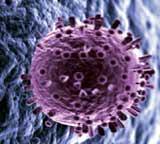 I love this time of year. Time for scary stuff, like more mad cow disease news, and brand-new Supreme Court deliberations, and creepy pictures, like this one of a virus penetrating a human cell. That's right, folks, it’s Pandemic Flu Awareness Week, and that means learning all about how the influenza virus works, what it can do to you when it gets its hemagglutininous hands on your sialic acid receptors, and lastly, getting worried enough to pay attention to what the powers that be are doing (or not doing) about it all.
I love this time of year. Time for scary stuff, like more mad cow disease news, and brand-new Supreme Court deliberations, and creepy pictures, like this one of a virus penetrating a human cell. That's right, folks, it’s Pandemic Flu Awareness Week, and that means learning all about how the influenza virus works, what it can do to you when it gets its hemagglutininous hands on your sialic acid receptors, and lastly, getting worried enough to pay attention to what the powers that be are doing (or not doing) about it all.The synchronicity of this is also fairly creepy. Over the last couple years I've been learning about the great flu pandemic of the early 20th century. Just a few years ago PBS ran a documentary about it, Influenza 1918. Then last week, baited by the Borders' 3 for 2 sale, I picked up a copy of John M. Barry's fine book, The Great Influenza, an account of the 1918 pandemic of the influenza virus known affectionately among scientists as good old "H1N1". And I've been buttonholing friends and innocent bystanders with all the gory details ever since.
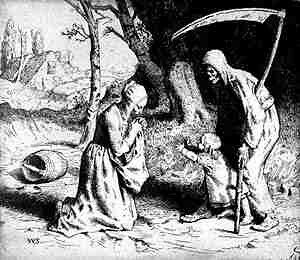
In that exponential way the quest for knowledge expands when a curious reader is exposed to the virus of a fascinating concept, I started reading everything I could find to try to understand what all this was about. I knew something about viruses from the first literary Big Scare, brought on by Richard Preston's The Hot Zone, which gruesomely detailed the habits and effects of the Ebola and Marburg viruses. What I didn't know was that the 1918 pandemic killed "more people than any other outbreak of disease in human history," as Barry put it in his book. And it did it in only 2 years' time. The last two days the papers have been full of the latest Bush talking points about how to prepare for a pandemic. Yesterday, as I was working on this post, I heard NPR announcing that a couple teams of scientists have made a major breakthrough, identifying the 1918 H1N1 killer as a bird flu virus that had jumped species directly into humans. The story has been on the online NYTimes for two days now.
 Influenza virus is believed to have originated in wild birds. The one that particularly worries scientists today is known by the catchy name “H5N1”. You've probably heard plenty about this by now: the intermittent reports of avian flu in Southeast Asia, the slaughter of over a million domestic fowl in Hong Kong, the deaths of a Thai woman and her daughter that pointed to a possible first human-to-human transmission, the surprise deaths in a wealthy Jakarta suburb of a father and his two young daughters who had no known contact with birds.
Influenza virus is believed to have originated in wild birds. The one that particularly worries scientists today is known by the catchy name “H5N1”. You've probably heard plenty about this by now: the intermittent reports of avian flu in Southeast Asia, the slaughter of over a million domestic fowl in Hong Kong, the deaths of a Thai woman and her daughter that pointed to a possible first human-to-human transmission, the surprise deaths in a wealthy Jakarta suburb of a father and his two young daughters who had no known contact with birds.Why is this so worrisome? While the virus has demonstrated that it can transmit itself bird-to-human, it has not been positively identified as being able to transmit human-to-human (though some circumstantial evidence exists that it may have). And in human-to-human transmission lies the potential for a pandemic. If it establishes itself as a human vector, it can devastate untold numbers of people around the world because, since no such virus has ever attacked the current living human populace, no one now living has developed any immunity to it.
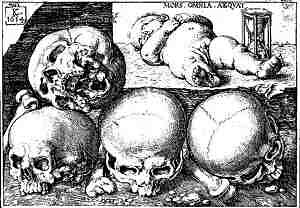 Transmission is a tricky business, because viruses have an almost sci-fi ability to mutate. Most of them are species specific; they may only infect horses and birds, or birds and pigs, or humans and monkeys. Some can adapt to leap the species barrier from, say, bird to human, but once into the new species, cannot go any further. Others, though, can adapt to not only leap that barrier, but settle in and spread throughout the new species, and these adaptations are made possible by genetic mutation. But more on that in a minute.
Transmission is a tricky business, because viruses have an almost sci-fi ability to mutate. Most of them are species specific; they may only infect horses and birds, or birds and pigs, or humans and monkeys. Some can adapt to leap the species barrier from, say, bird to human, but once into the new species, cannot go any further. Others, though, can adapt to not only leap that barrier, but settle in and spread throughout the new species, and these adaptations are made possible by genetic mutation. But more on that in a minute.Yesterday Bloomberg reported:
“A 23-year-old Indonesian man who died last week tested positive for bird flu, increasing to seven the number of human fatalities from the disease, a doctor at the Sulianto Saroso hospital in Jakarta said.No confirmation. But the more recent deaths in Jakarta also occurred where no direct contact with fowl was known to have taken place. Let’s take a few steps back, and see what we’re dealing with.The World Health Organization laboratory in Hong Kong will need to confirm the local test results. The UN agency has so far confirmed four human fatalities from H5N1, a deadly strain of the avian influenza virus, in Indonesia....
More than 140 million chickens have been slaughtered in Asia because of concern the H5N1 strain of the virus may mutate into a form easily transmissible between humans. As humans are unlikely be immune to such a virus, the World Health Organization is concerned it may trigger an influenza pandemic like the one that led to more than 40 million deaths worldwide in 1918.
The highly pathogenic H5N1 is endemic in poultry in many parts of Indonesia, WHO said in the statement, citing the Food and Agriculture Organization. More than 10 million chickens have been killed by the virus since the outbreak in 2003, Agriculture Minister Anton Apriantono said on Sept. 19.
There has been no confirmation of human-to-human transmission of the virus. One case of probable human-to-human infection occurred in Thailand last year, when a mother and her daughter died from the disease.”
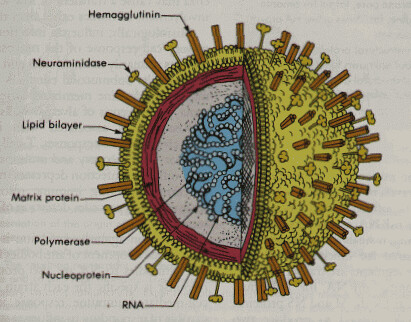 The influenza virus, like all viruses, has only one known function: to replicate itself. It does this by invading a host cell, hijacking the gene-making machinery inside, and forcing the cell to reproduce so many of the original virus that the sheer number of them finally bursts open the cell and kills it. The newly-escaped brood of up to a million new viruses then sets out to do the same to the nearest suitable cells.
The influenza virus, like all viruses, has only one known function: to replicate itself. It does this by invading a host cell, hijacking the gene-making machinery inside, and forcing the cell to reproduce so many of the original virus that the sheer number of them finally bursts open the cell and kills it. The newly-escaped brood of up to a million new viruses then sets out to do the same to the nearest suitable cells.What makes a suitable cell? When a bird gets the flu, it goes for the gastrointestinal tract. In human beings, it attacks the respiratory system, which means the epithelial cells that protect the surface of the lungs and bronchi. (While it may take the virus less than 72 hours to denude the respiratory surfaces of epithelial cells, it will take the body weeks to build them back up again--if it survives). In the meantime, their destruction can allow the virus to penetrate deep into the lobes of the lungs, resulting in viral pneumonia, or let bacteria in, causing bacterial pneumonia. In either case, the resulting war between the invader and the body's immune system can wreak such destruction that, in the worst cases, the capillaries can be destroyed by killer proteins and the lungs fill up with fluid, blood, dead cells, collagen, and fibrin, drowning the victim or causing heart failure or death by exhaustion from the sheer strain of trying to breathe.
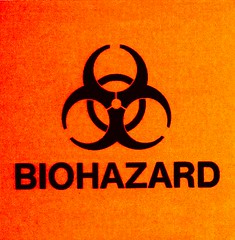
Normally when a micro-organism invades the body, the immune system rallies to attack it, and it recognizes the foreign invader by the antigens it carries. Once it has engaged the enemy in combat, the immune system "remembers" what that enemy looks like because the antigens have caused it to release antibodies specific to those antigens. Thereafter, any further attack will rally the same antibodies, resulting in a response so swift and effective that the body can be said to have developed an immunity to the invasive organism. The principle of vaccination capitalizes on this process by introducing antigens into the body in a controlled way so the immune system can learn to recognize them and create the antibodies that will immunize the body in case of future encounters.
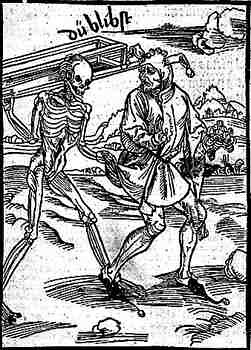 The antigens of the influenza virus consist of two types of protrusions carried like spikes all over its surface: hemagglutinin (the "H" factor), which enables it to bind to the host cell, and once inside, break into the genetic machinery, and neuraminidase (the "N" factor), which destroys the sialic acid of the host cell and allows the newly-created viruses to escape the dying cell and explode into the body. The flu virus' RNA-based genetic code provides no safeguard against mutation as it replicates in the hijacked cell (resulting in the creation of literally millions of different kinds of "quasi-species" in the course of a few hours), and unlike many other viruses, it can survive the mutation of its antigens and continue to function. Worse, it has the demonic ability to mutate not only properties of these antigens when replicating (antigen drift), but even entirely new antigens if it comes into contact with other different types of flu viruses (antigen shift). "Antigen drift" hides a virus from an immune system that once recognized it, resulting in epidemics, which is why flu vaccines have to be constantly changed and updated. But “antigen shift”, essentially the creation of a brand-new type of virus that the immune system has never encountered in any form, is what causes pandemics, the ultimate concern scientists have about the H5N1 virus. This means if a human being contracts the H5N1 virus from a bird, and also happens to be carrying a human flu virus, the two organisms may collide during replication, where the loose strings of RNA genes may come apart and reassort with each other, suddenly resulting in a virus that inherits the human virus’ ability to transmit from person to person. The same can happen when a 3rd party “mediates” the mutation, as with pigs, which are susceptible to both avian and human viruses. If a pig happens to carry both at the same time, it may pass to its handlers a mutant that may go on to infect other humans.
The antigens of the influenza virus consist of two types of protrusions carried like spikes all over its surface: hemagglutinin (the "H" factor), which enables it to bind to the host cell, and once inside, break into the genetic machinery, and neuraminidase (the "N" factor), which destroys the sialic acid of the host cell and allows the newly-created viruses to escape the dying cell and explode into the body. The flu virus' RNA-based genetic code provides no safeguard against mutation as it replicates in the hijacked cell (resulting in the creation of literally millions of different kinds of "quasi-species" in the course of a few hours), and unlike many other viruses, it can survive the mutation of its antigens and continue to function. Worse, it has the demonic ability to mutate not only properties of these antigens when replicating (antigen drift), but even entirely new antigens if it comes into contact with other different types of flu viruses (antigen shift). "Antigen drift" hides a virus from an immune system that once recognized it, resulting in epidemics, which is why flu vaccines have to be constantly changed and updated. But “antigen shift”, essentially the creation of a brand-new type of virus that the immune system has never encountered in any form, is what causes pandemics, the ultimate concern scientists have about the H5N1 virus. This means if a human being contracts the H5N1 virus from a bird, and also happens to be carrying a human flu virus, the two organisms may collide during replication, where the loose strings of RNA genes may come apart and reassort with each other, suddenly resulting in a virus that inherits the human virus’ ability to transmit from person to person. The same can happen when a 3rd party “mediates” the mutation, as with pigs, which are susceptible to both avian and human viruses. If a pig happens to carry both at the same time, it may pass to its handlers a mutant that may go on to infect other humans.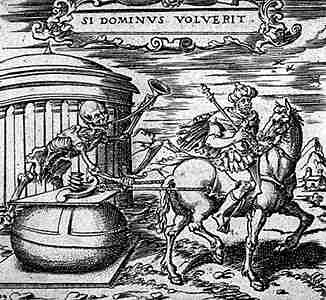 At this point there is uncertainty as to whether H5N1 has yet mutated in this way, though if it had, its virulence would have likely begun killing far more people by now. The World Health Organization reports that as of 9/29/05, there were 116 cases resulting in 60 deaths--a mortality rate of 52%. But even if the transmission issue is still uncertain, there is absolutely no doubt among scientists everywhere, from those at WHO to the Center for Disease Control, that it is a very real danger. The announcement yesterday by the teams of researchers at the CDC confirms that the pandemic flu of 1918 developed just as they fear H5N1 is developing.
At this point there is uncertainty as to whether H5N1 has yet mutated in this way, though if it had, its virulence would have likely begun killing far more people by now. The World Health Organization reports that as of 9/29/05, there were 116 cases resulting in 60 deaths--a mortality rate of 52%. But even if the transmission issue is still uncertain, there is absolutely no doubt among scientists everywhere, from those at WHO to the Center for Disease Control, that it is a very real danger. The announcement yesterday by the teams of researchers at the CDC confirms that the pandemic flu of 1918 developed just as they fear H5N1 is developing.Here is the paradox: the more virulent the influenza virus, the more violently the immune system reacts, and the healthier the immune system is, the stronger that reaction will be. This is why the pandemic of 1918 killed so many young adults. The deaths of young, healthy people in Asia who contracted H5N1 is a warning signal.
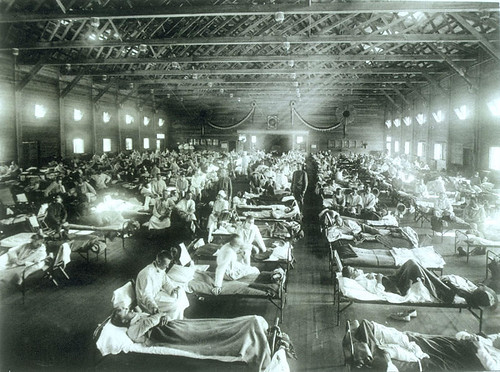 What can we do? It's not as if we can get into the lab and whip up our own genetically recombined virus for a vaccine. Mike Davis, author of Monster at Our Door, outlined in Common Dreams last year the many problems that would prevent an appropriate and sufficient response to a pandemic: lack of a vaccine and limited production capacity, lack of a vast-enough vaccine delivery system, and lack of public knowledge or interest. Add to that John Barry's more recent assessment: drug-resistant bacteria, insufficient medical facilities, long waiting lists and insufficient manufacturing capacity for antiviral drugs like Tamiflu, massive economic and social disruption, and of course, the deaths, for which current casket inventories would be completely inadequate, resulting in the piling up of corpses in homes and everywhere else.
What can we do? It's not as if we can get into the lab and whip up our own genetically recombined virus for a vaccine. Mike Davis, author of Monster at Our Door, outlined in Common Dreams last year the many problems that would prevent an appropriate and sufficient response to a pandemic: lack of a vaccine and limited production capacity, lack of a vast-enough vaccine delivery system, and lack of public knowledge or interest. Add to that John Barry's more recent assessment: drug-resistant bacteria, insufficient medical facilities, long waiting lists and insufficient manufacturing capacity for antiviral drugs like Tamiflu, massive economic and social disruption, and of course, the deaths, for which current casket inventories would be completely inadequate, resulting in the piling up of corpses in homes and everywhere else. How many corpses would H5N1 leave in it's wake? Barry's equation is that a new flu virus will make between 14-40% of the population symptomatic. Using that percentage, and using the mortality rate of 52% mentioned above, here in the United States we could expect from 44 million to 115 million to fall ill, and from 23 million to 58 million dead. We have never, ever experienced that kind of devastation: 20% of our populace dead, and the majority of them, if true to the 1918 virus, young adults.
So now the government has been all over the news the last couple days crowing about all the work they're going to do on this issue.
You saw the Katrina response.
What will you be expecting?
Monday, October 03, 2005
You'll Want A Cigarette After This
Informed Comment gets down.
After collecting all the circumstantial evidence on the Plame affair from the last few years and tying it all up it a neat, convenient package for easy consumption, Juan Cole fingers the real culprits, then tacks up his 95 Theses to the old wooden door of his blog:
After collecting all the circumstantial evidence on the Plame affair from the last few years and tying it all up it a neat, convenient package for easy consumption, Juan Cole fingers the real culprits, then tacks up his 95 Theses to the old wooden door of his blog:
"Rove and Libby were chosen as the hatchet men who would actually talk to the reporters and put the information around. But of course Bush and Cheney were part of the deliberations that set the plan in motion. It involved outing a career CIA operative (and likely getting her contacts in the third world killed). It was very serious business. Bush would have had to have signed off on it, at least orally.My man.
As long as the Republicans control both houses of congress, Bush is probably safe. I'm not sure a special counsel like Fitzpatrick could by himself bring down a president. But if the Democrats can take the Senate in 2006, this scandal could turn into an impeachment trial.
I have long been frustrated by the US press's tendency to talk about Bush's cabinet officers as though they were independent agents, and to put Bush on a pedestal. Let me just follow through on some further assertions in the spirit of Stephanopoulos's remark.
It is fruitless to speculate about who dissolved the Iraqi army in May of 2003, and why. (This move contributed to the rise of the Sunni Arab guerrilla movement). Bush did it!
Who ordered the Marines, against their better judgement, to launch a reprisal attack on Fallujah after four Western private security guards were killed and their bodies desecrated there? Bush did it!
Who authorized torture at Guantanamo and Abu Ghraib? Bush did it!
Who appointed Michael Brown, a man with no experience in emergency management, head of FEMA? Bush did it!
Who let Bin Laden escape from Tora Bora? Bush did it!
Who completely destroyed the fiscal health of the US government and forced us into massive debt, squandering Clinton's surplus and endangering social security? Bush did it!.
Bush is the president. He makes the decisions. If there has been a major bad decision, it has been his.
Who outed Valerie Plame as an undercover CIA operative? Bush did it!"
Here's Your Moral Majority
 There's just no point in commenting on something as self-evident as the cold, calculating fascism in this:
There's just no point in commenting on something as self-evident as the cold, calculating fascism in this:"The White House on Friday threatened to veto a $440.2 billion defense spending bill in the Senate because it wasn't enough money for the Pentagon and also warned lawmakers not to add any amendments to regulate the treatment of detainees or set up a commission to probe abuse."Not enough money for the most wasteful program of corporate welfare ever devised by man! And we'll have none of that "accountability" horseshit, while we're at it; that stuff's for impoverished shitkickers and ghetto denizens. This is an administration that has carved out previously unhoped-for Executive power, thanks to the likes of John Roberts and Alberto Gonzales, and there's no way the Little Man is going to start answering to the American people, let alone Human Rights Watch, Amnesty International, and the Constitution.
Why, if we started expecting Bush to look critically at the waste of the Defense Department, or demanded he be held accountable for the deterioration and ruination of Constitutional law, we might actually expect him to put some of those much publicized Christian principles into play and help the hurricane victims. And Christ knows, that way lies madness. As Paul Krugman noted this morning:
"Start with health care, where conservative senators, generally believed to be acting on behalf of the White House, have blocked bipartisan legislation that would provide all low-income victims of Katrina with health coverage under Medicaid.We have neither the time nor the dogma to get behind ministering to the health needs of those of our citizens who have lost everything but the clothes on theire backs. It simply doesn't fit into the Conservatives' New World Order. And we're not going to house them, either, unless it's to sit them on the curb while we funnel plenty of money to our buddies, then shove them into some trailer that will dump over like a toy when the next hurricane comes along:
In a letter urging Senate leaders to reject the bill, Mike Leavitt, the secretary of Health and Human Services, warned that it would create "a new Medicaid entitlement." He asserted that victims can be taken care of by Medicaid "waivers," which basically amount to giving refugees the health benefits, if any, that they would have been entitled to in their home states -- and no more.
As the Center on Budget and Policy Priorities points out, many needy victims won't qualify for aid. For example, Medicaid doesn't cover childless adults of working age. In fact, surveys show that many destitute survivors of Katrina are being denied Medicaid, and some are going without medicines they need."
"These days, both conservatives and liberals agree that public housing projects are a bad idea, and that housing vouchers -- which help the poor pay rent -- are much better. In the aftermath of the 1994 Northridge earthquake, special housing vouchers issued to victims worked very well.Krugman comes to the conclusion that Bush is trapped between being politically unable to ignore the needs of the hurricane survivors, and yet wanting to forge ahead with his destruction of the social safety net:
But the administration has chosen, instead, to focus its efforts on the creation of public housing in the form of trailer parks, which have been slow to take shape, will almost surely be more expensive than a voucher program and may create long-term refugee ghettoes."
"So here's the key to understanding post-Katrina policy: Mr. Bush can't avoid helping Katrina's victims, but he doesn't want to legitimize institutions that help the needy, like the housing voucher program. As a result, his administration refuses to use those institutions, even when they are the best way to provide victims with aid. More generally, the administration is trying to treat Katrina's victims as harshly as the political realities allow, so as not to create a precedent for other aid efforts.As are the poorest and the working poor among us, and as are the prisoners of war being held legitimately and illegitimately by our war machine.
As the misery of the hurricane's survivors goes on, remember this: to a large extent, they are miserable by design."
Sunday, October 02, 2005
More Than One Way To Cook A Fish
 Here's a site where you can do an end-run around the NY Times' Select stonewall. Once there, just type in the author you want to read, and voila.
Here's a site where you can do an end-run around the NY Times' Select stonewall. Once there, just type in the author you want to read, and voila.UPDATE: I forgot to thank Lee for the info. Thanks, Lee!
NEWER UPDATE: I gave up trying to update the Frank Rich link because the website keeps changing one crucial little number in the address, rendering the URL inevitably out of date after a period of time has elapsed. Better you should just go there and ask for the author yourself.
Saturday, October 01, 2005
At Last
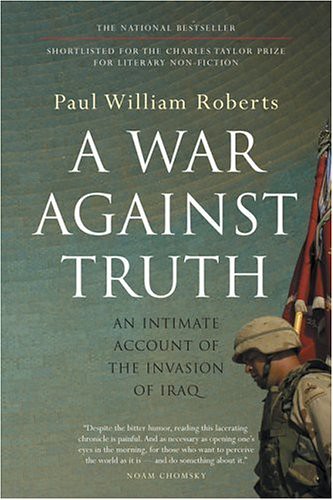 Paul William Roberts' book, A War Against Truth, has just arrived at my home today, having only just been released in the States. I've been waiting to get my hands on this. I mean, this is a man with all the street cred you could ever expect from a reporter in Iraq, a man who speaks the language, who has lived among the people and had friends there, who has spoken with Saddam Hussein, and who knows what it feels like for the bombs of 2003 to tear apart the house in which he is living, and kill his friends in front of his eyes. A man who is telling you things like this:
Paul William Roberts' book, A War Against Truth, has just arrived at my home today, having only just been released in the States. I've been waiting to get my hands on this. I mean, this is a man with all the street cred you could ever expect from a reporter in Iraq, a man who speaks the language, who has lived among the people and had friends there, who has spoken with Saddam Hussein, and who knows what it feels like for the bombs of 2003 to tear apart the house in which he is living, and kill his friends in front of his eyes. A man who is telling you things like this:""My Mummy and Daddy," Bassim explained, the strained rationality in his voice making his words sound like plastic. "I must help them … in there … They're in there," he added, in case I had forgotten who lived in the house.If you don't have this book, go to the link and read the first chapter.
Bassim tried climbing up the exterior wall, but his efforts just dislodged more concrete and masonry. We picked our way around to the rear, looking for a way in but finding nothing viable. The fire inside was getting worse, snapping and spitting as it gorged on kerosene and cooking oils.
Then, on the far side, we found an entire upper room exposed intact to the black night air. Its outer wall had been peeled away, like a dolls' house or an architectural illustration, revealing the interior: a tiny wardrobe, a small armchair, a little writing table, a narrow pallet with a diminutive person asleep beneath pristine white sheets.
There was a noise like some giant beating on a steel door with a 200-foot-long hammer. Then came an intense roaring sound followed by a staggeringly huge explosion not far away. My cheeks flapped and lips opened involuntarily as the wave hit, shattering more glass and causing the dying house to lurch as if galvanized. Great pistons plunged through the tiny canals in my ears; I felt as if my brain was being squeezed by big soft hands.
Bassim, oblivious, had already scrambled up the brickwork and was soon cradling the little head. It was his great-aunt. She had probably died of heart failure around the time of impact.
I recalled the only thing she had ever said to me, the day before:
"You must tell Mr. Bush that this is not a good thing he does here. He thinks it is a good thing, but it is not at all good. Ask him which of his own children he would allow to die to destroy Saddam Hussein. He will not be willing to see his own child die for this. Then why must we see our children die for this madness? This is what you must write for the Americani to read … is it not so?" She had turned to the others for support here.
"Aunty wants to be the next Minister of Information," Bassim had told me, gently mocking the frail old lady.
"I don't have the imagination for that any more," she had said, not missing a beat. "Mohammed Sayeed Sahaf is doing a fine job, anyway, and this is because, you see, he always wanted to be a writer of novels. The 'Mother of All Battles' was his phrase, you know?"
"This is the Mother of All Aunties," Bassim had confided to me, loudly enough for his great-aunt to hear.
"Take him back to England with you," she had asked me, suddenly very serious. "Rana and Amira too. There is no life for them here. Make him go back with you …"
Her voice had sounded so desolate and drained that I simply nodded to her grimly — Yes, I will, I will. I promise.
"Bassim, promise you will go back with Mr. Robert. Take your family. Get out of here!"
"Oh, Aunty, don't be so grim. Look on the bright side. Everything will turn out fine — you'll see …""
Then follow this link to Roberts' Globe and Mail piece done September 10, on the desolation of New Orleans, the p/blunder of Iraq, and the American death-wish that is our foreign policy, where you'll read things like this:
"All the television pictures from New Orleans of water with people and houses under it certainly captured the world's attention. What the world attended to, however, wasn't so much the feeble efforts to relieve the city as the startling and unfamiliar sight of, as one of my Iraqi e-pen pals puts it, "so much terrible poverty in a country so much rich."Then, totally off-topic, check out David Strathairn in Good Night and Good Luck. Maybe the current crop of "journalists" will pick up a few tips.
Many of the people being winched off rooftops did not even own television sets, let alone cars or telephones, so it is hardly surprising they had made no plans to escape until their shacks were under 20 feet of water.
Another Iraqi pen pal was disturbed by the sight of the looters: "Some I see, they look not much human, like wild men." Some were also cops.
But, as a rehabilitated looter myself — I was in Baghdad two years ago when it fell to the invading Americans — I am in no position to judge a little petty pilfering, particularly when the perps have just lost everything they owned.
All in all, the general feeling I derived from these ripples of Arab thought was that, in terms of peeling the veneer of society back to reveal what lurks beneath the codes of law and those who enforce them, the Iraqi capital comported itself a good deal better than New Orleans did.
At least under Saddam Hussein, everyone knew the government lied to them about everything all the time, and also that the media were merely a wing of the regime. Americans may just be waking up to a similar realization, since, thus far at least, no one has told them just how disastrous this disaster is going to be for the nation. You can always tell when the neocons are rattled by some event: They accuse anyone discussing the corporate or government role in it of playing politics with human tragedy. This, of course, is not something they would ever do."
Certainly they could learn something from Roberts.
So They Broke The Law (Again)
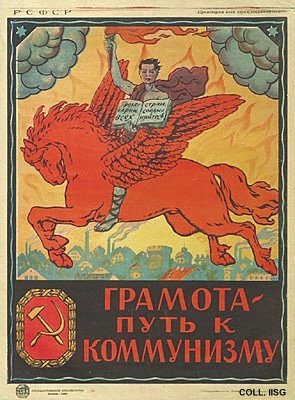 According to Editor & Publisher:
According to Editor & Publisher:Now, this is not a surprise. We who follow these things have been watching the Department of Propaganda spewing its nonsense for years out of this administration. Remember the TV ads faked up as news reports on the "benefits" of the new Medicare drug plan, right down to releasing talking points to news station anchors to be read during the braodcasts? Those were ruled illegal, too. In March, TalkLeft highlighted a lengthy NYTimes story on the continuing Bush propaganda war, and reported that at least two laws and regulations had been violated or broken by the administration.
"The Bush
Administration
violated laws prohibiting the use of covert propaganda when it secretly paid broadcaster columnist Armstrong Williams to promote its education policies, the U.S. Government Accountability Office said Friday...
The GOA's report also uncovered a previously undisclosed case in which the Education Department had commissioned a newspaper article. The article, on the "declining science literacy of students," was distributed by the North American Precis Syndicate and appeared in numerous small newspapers around the country, according to the report in the Times. The government's role in the writing of the article, which praised the department's role in promoting science education, was never disclosed."
So they did it again. Yawn.
What will be newsworthy will be the day they are arrested and prosecuted. I expect to be in my grave before I see that.
Subscribe to:
Comments (Atom)




